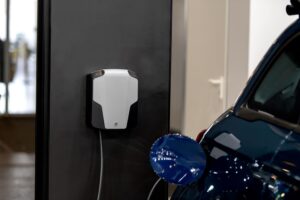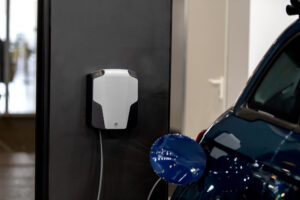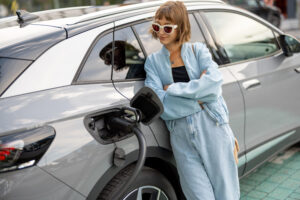As we navigate through an electric future, renewable energy sources are becoming increasingly viable. Among these, hydrogen stands out as a fascinating and promising player to power electric vehicles.
Despite the current limited availability of hydrogen vehicles, hydrogen has been around for a while to power various applications, from industrial processes to rocket fuel.
So, how will this renewable energy source drive the future? Let’s explore hydrogen fuel cell electric vehicles!
What is a Fuel Cell Electric Vehicle?
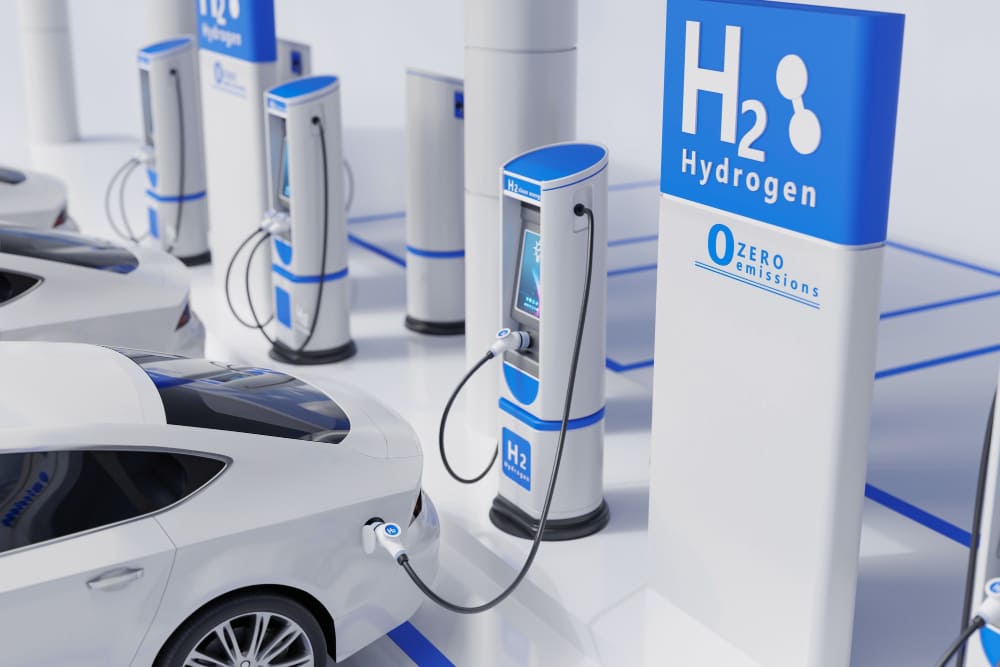
A Fuel Cell Electric Vehicle (FCEV) utilises a fuel cell system to convert hydrogen gas into electricity. Then, the electricity powers the electric motor that drives the vehicle. These vehicles produce zero tailpipe emissions, with water being their only byproduct, making them a green and sustainable transportation option.
Are Hydrogen Cars Better than Electric Ones?
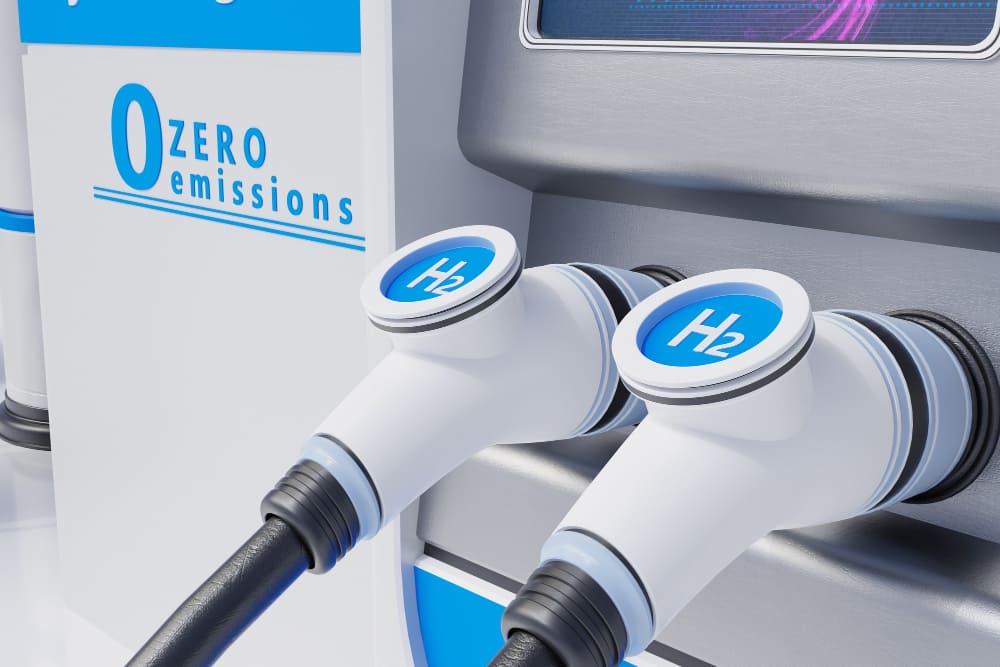
When comparing hydrogen vs electric cars, there are several aspects to be noted.
Some pros of hydrogen fuel cell cars are almost zero emissions, filling up is a familiar process, renewable and readily available, and highly efficient than other energy sources.
On the other hand, it has several drawbacks, including the high cost of raw materials, regulatory issues, and hydrogen extraction. However, these drawbacks are more on the manufacturers’ side than the consumer’s.
So, are hydrogen cars better than electric ones? Generally, it is better for the consumers and the environment.
Key Components of Hydrogen Fuel Cell Electric Vehicles
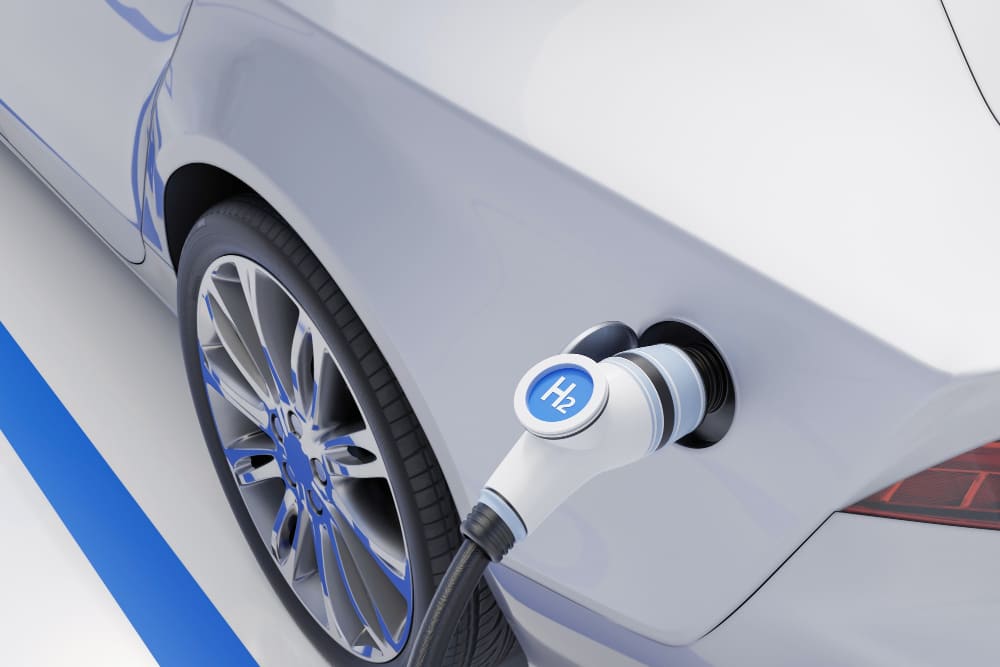
Hydrogen fuel cell vehicle has several key components to work. Here are the components:
- Auxiliary Battery: In electric vehicles, this low-voltage battery supplies the initial electricity to start the car before the main traction battery takes over.
- High-Voltage Battery Pack: This component stores energy harnessed from regenerative braking and supplies additional power to the electric motor when needed.
- DC/DC Converter: This piece of equipment transforms high-voltage DC power from the main battery pack into lower-voltage DC power necessary to operate vehicle accessories and recharge the auxiliary battery.
- Electric Traction Motor: Powered by the fuel cell and the main battery pack, this motor propels the vehicle’s wheels. Some vehicles employ motor generators that can execute both driving and regeneration operations.
- Fuel Cell Stack: A collection of individual membrane electrodes that utilize hydrogen and oxygen to generate electricity.
- Fuel Filler: This part of the vehicle allows a nozzle from a fuel dispenser to connect to it for refuelling purposes.
- Hydrogen Fuel Tank: This storage tank keeps the hydrogen gas inside the vehicle until it’s required by the fuel cell.
- Power Electronics Controller (FCEV): This device controls the distribution of electrical energy supplied by the fuel cell and the main battery. It adjusts the speed and torque of the electric traction motor.
- Thermal System (FCEV): This system manages the appropriate operating temperature range for the fuel cell, electric motor, power electronics, and other vehicle parts.
- Electric Transmission: This component transfers mechanical power from the electric traction motor, which then drives the wheels.
How Fuel Cell Electric Vehicles Work Using Hydrogen
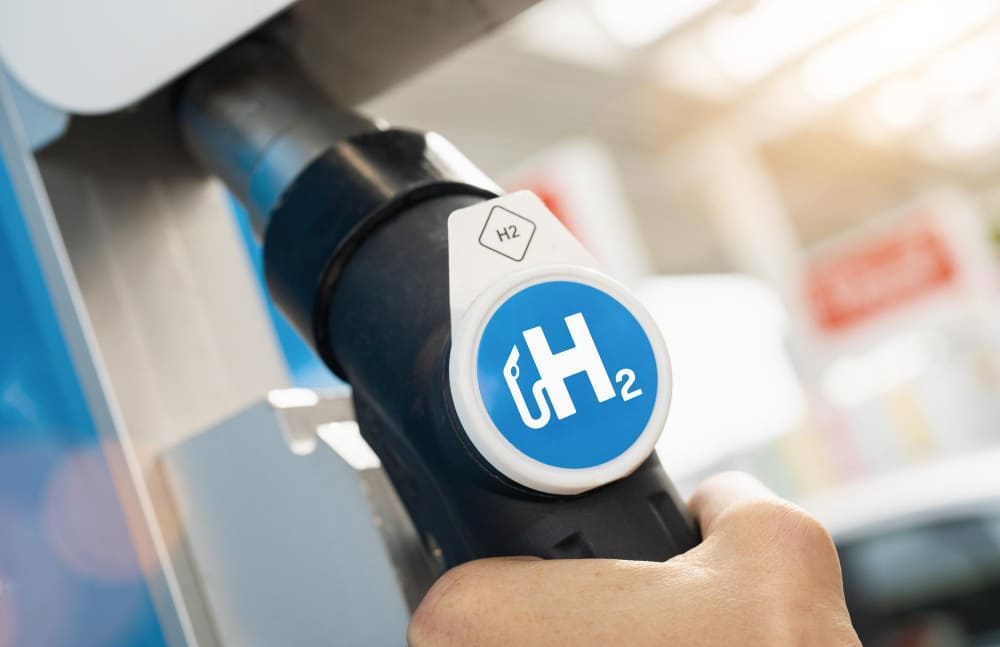
Utilizing fuel cell stacks, electric vehicles produce electricity from hydrogen. Here’s how it works.
When the vehicle is started, the hydrogen from the hydrogen fuel tank is directed to the fuel cell stack. At the same time, oxygen is drawn in from the surrounding air. Inside the fuel cell stack, the hydrogen and oxygen combine in a chemical reaction that produces electricity, with water and heat as byproducts.
This electricity is then used to power the electric traction motor, which drives the vehicle’s wheels.
Frequently Asked Questions
Will hydrogen fuel cells replace electric cars?
Hydrogen fuel cells aren’t expected to replace electric cars. They’re seen as a potential supplement, particularly for larger and long-range vehicles. Despite their advantages like quicker refuelling and longer range, electric vehicles currently lead in technology development and infrastructure.
Why is hydrogen not used as a fuel in cars?
Hydrogen isn’t widely used as a fuel in cars due to several reasons, including its non-eco-friendly production, inefficient energy converting process, expensive, lack of refuelling infrastructure, and its flammable characteristic that poses safety concerns in case of crashes.
Which is better, a hydrogen fuel cell or EV battery?
It depends. An electric car battery is typically better suited for smaller vehicles and daily drivers due to its lower cost, simpler technology, and existing charging infrastructure. However, hydrogen fuel cells, with their higher energy density, can be more efficient for long-distance and larger vehicles, offering a significant range advantage.
Conclusion
In conclusion, hydrogen fuel cell electric vehicles mark an exciting leap in automotive technology. These vehicles offer compelling benefits such as quick refuelling times and superior range. While challenges remain, the potential for a cleaner, more sustainable transport future is undeniable.
As the sector evolves, seeing how hydrogen fuel cell technology shapes our mobility landscape will be fascinating. In the meantime, it is better to stick to electric vehicles for a greener environment.
Visit Kilowatt Cars now to find the best second hand electric vehicles for sale in Yackandandah and second-hand electric vehicles for sale in Melbourne!
